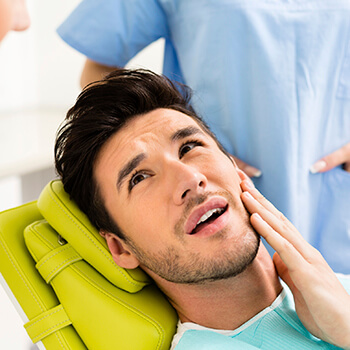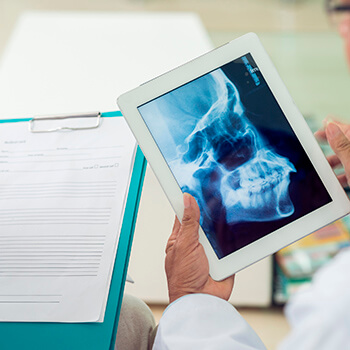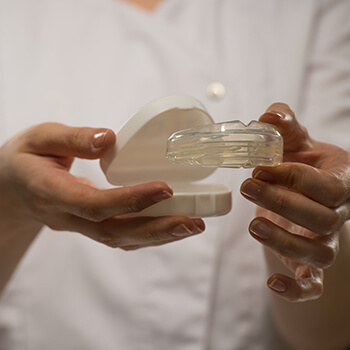Pain Relieving TMJ/TMD Therapies in Crown Point, IN

The temporomandibular joints, or TMJ as they are often referred, these joints connect the jaw to the skull bone and allow the mouth to open and close smoothly and painlessly. However, if these joints are strained or damaged, daily activities like speaking, smiling, chewing, and yawning may become painful or impossible. Known as TMJ dysfunction (TMD), this oral health concern can be extremely debilitating. Luckily, Advanced Dental Concepts offers a few simple, comfortable solutions to help patients restore the full function of their smile.
Diagnosis & Treatment

The first step in the treatment planning process is to diagnose the oral health condition. During regular checkups, our dentist will screen for the warning signs of TMD, but we also encourage patients to contact us if they experience any combination of the following early warning signs:
- Sharp pain when chewing, speaking, or moving jaw
- Dull, throbbing pain in the jaw, head, neck, or ear, especially if the pain is more severe upon waking
- Clicking or grinding noises when the jaw is opened and closed
- Limited or no jaw mobility
The sooner we’re able to begin treatment, the more conservative care plan we can recommend. If TMD reaches an advanced stage, patients may need complex orthodontic or surgical care.
Occlusal Splints

Worn at night, these splints adjust occlusion (the way the two rows of teeth fit together) in order to allow the jaw to rest comfortable during sleep. This limits unnecessary jaw movement at night, and prevents strain on the TMJ. Often referred to as nightguards, the custom appliances reposition the jaw to rest in the ideal position, during sleep when patients frequently cause unconscious strain or damage to the TMJ.
Occlusal Adjustments

Occlusal adjustment can be completed in a variety of ways. In some cases, patients are able to perform daily stretching or facial movement exercises that allow the bite to realign in a more comfortable, natural position. In other cases, patients will need to combine these daily exercises with a custom nightguard. Occlusal correction with braces or retainers may be necessary for more advanced cases. In the most severe cases, we may need to work with a trusted oral and maxillofacial surgeon to provide advanced treatments.

